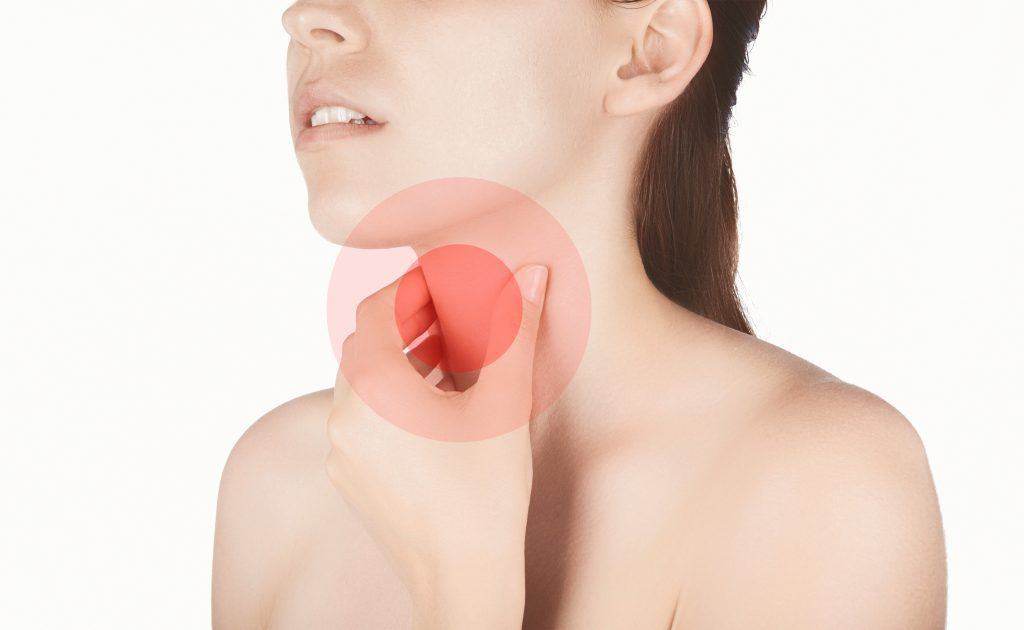Hyperthyroidism is one of the most common thyroid diseases. It affects women much more often than men. How to recognize the first symptoms of this disease?
Hyperthyreosis, or hyperthyroidism, is a disease that affects every 60th woman. The affliction is associated with an excess of thyroid hormones such as thyroxine, calcitonin, triiodothyronine in the body. The excess of hormones leads to acceleration of the body. Unfortunately, this is not a good thing in the long run.
The thyroid gland is undoubtedly one of the most important organs in the human endocrine system. It is one of the endocrine glands. It plays an important role in the processes of aerobic metabolism, energy balance maintenance, heat production. The thyroid gland is located on the neck – in its front part. Right next to it run important blood vessels.
The thyroid stimulating hormone is TSH – thyrotropin. Under the influence of TSH, the thyroid produces T4 (thyroxine) and T3 (triiodothyronine). Hyperthyroidism occurs when there is an overproduction of thyroid hormones, in which case the TSH concentration in the blood decreases. Hypothyroidism is the opposite situation – with a deficiency of thyroid hormones in the blood, TSH increases. Thus, thyroid diseases result from a disorder in hormone production.
The major causes of thyroid diseases include:
Among all endocrine disorders, hyperthyroidism is the one that is very difficult to diagnose. This is because the initial symptoms are quite positive in perception. Increased energy, agitation, weight loss. So it seems that the body is in top form. Unfortunately, the opposite is true.
The symptoms of hyperthyroidism include:
Hyperthyroidism also gives psychological symptoms. Nervousness is accompanied by jitteriness, emotional vacillation, irritability and crying. General agitation causes feelings of anxiety.

In addition to the aforementioned weight loss, skin redness, and excessive sweating throughout the body, hyperthyroidism affects the patient’s physical appearance. Hormonal changes can also cause itchy skin. As a result of intense scratching, the sebaceous glands are stimulated, which aggravates the problem of excessive sebum secretion.
In the case of Graves’ disease, hyperthyroidism, nodules can appear on the calves. These are painless, hard, subcutaneous masses located on the front of the limb. Another pathological change is excessive hair loss, resulting in baldness. Skin problems may also include nails. The nail plate becomes loose, and the nail itself becomes brittle and wrinkled.
If you notice alarming symptoms in yourself, it is worth going for a blood test (TSH) and to an endocrinologist. A specialist will assess whether our suspicions are correct. Tests usually begin with ultrasound of the thyroid. The next step is to determine the cause of the disorder. Correct diagnosis will allow to choose the appropriate treatment.
Most often, hyperthyroidism is treated in a number of ways. On the one hand, with pharmacological measures to stabilize hormone levels. On the other hand, therapy must be directed at the cause of the disorder. This may be psychotherapy and creating a calm environment for the patient to promote recovery. It may be treating the comorbidities that led to the hyperthyroidism.
Thyreostats – anti-thyroid drugs – will help with treatment. Their main purpose is to inhibit the production of thyroid hormones and bring hormonal balance. Treatment is always selected individually for each patient. It is usually a long-term process.
Main photo: puhhha/Adobe Stock